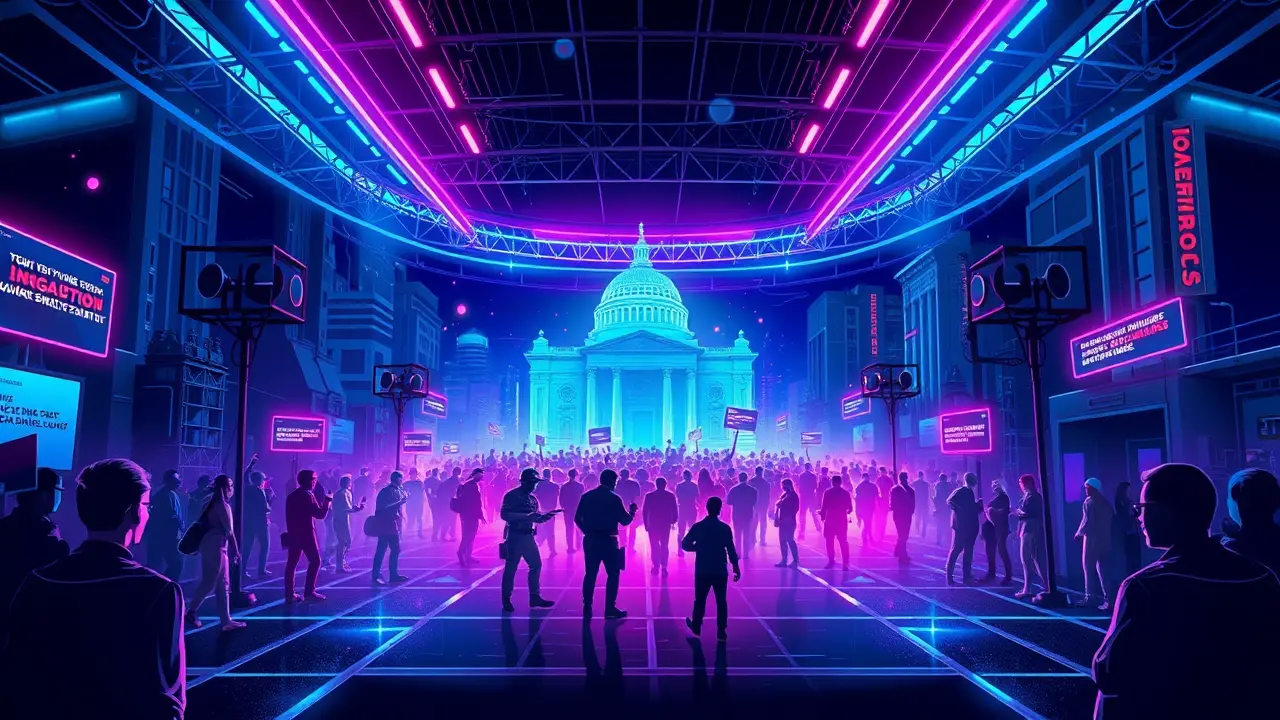- News
- governments-cabinets
- Trump Wants to Take Over Cities. Influencers Are Giving Him the Fuel to Do It
Trump Wants to Take Over Cities. Influencers Are Giving Him the Fuel to Do It
The political arena is heating up, and the Trump campaign's latest offensive is a masterclass in modern political warfare—they've built a content machine that's flooding the zone, creating its own reality to justify a sweeping law-and-order immigration agenda that could fundamentally reshape urban governance. Think of it not as traditional policy-making but as a full-spectrum media campaign, where every tweet, every influencer post, every viral video is a tactical move designed to dominate the narrative.This isn't just about messaging; it's about creating a self-sustaining ecosystem of justification, where carefully curated anecdotes and amplified outrage from a network of online personalities provide the fuel for a radical expansion of federal power into America's cities. We've seen this playbook before in microcosm—the way a campaign can weaponize social media to bypass traditional gatekeepers—but the scale and ambition here are unprecedented.It’s a political blitzkrieg, leveraging the raw, unfiltered power of digital engagement to frame a complex, multifaceted issue into a simple, binary choice: order versus chaos. The influencers, many with massive followings but little background in policy detail, become the infantry in this information war, translating a hardline agenda into relatable, emotionally charged content that resonates with a base already primed for a fight.They're not just cheerleaders; they're force multipliers, creating a permission structure for actions that might otherwise face stiffer institutional resistance. The strategy is brutally effective because it operates at the speed of culture, not the plodding pace of legislation, constantly reinforcing the core campaign theme that urban centers are in a state of crisis that only a strong, centralized authority can solve.This approach deliberately sidesteps the traditional checks and balances of journalistic scrutiny and expert analysis, creating an alternative information universe where the administration's preferred narrative is the only one that matters. The potential consequences are profound, setting a dangerous precedent where executive power, buoyed by a manufactured digital consensus, could override local autonomy on a scale we haven't witnessed in modern times.It's a high-stakes gamble that pits the decentralized, often chaotic energy of online communities against the established, though increasingly fragile, institutions of local government. For political strategists, this is the new frontier—a permanent campaign not for votes, but for control, fought not on the streets or in the halls of power, but in the feeds and algorithms that shape public perception every minute of every day. The 2024 election won't just be decided at the ballot box; it's being won and lost right now, in the relentless, data-driven, and deeply personal theater of online influence.
It’s quiet here...Start the conversation by leaving the first comment.
© 2025 Outpoll Service LTD. All rights reserved.
